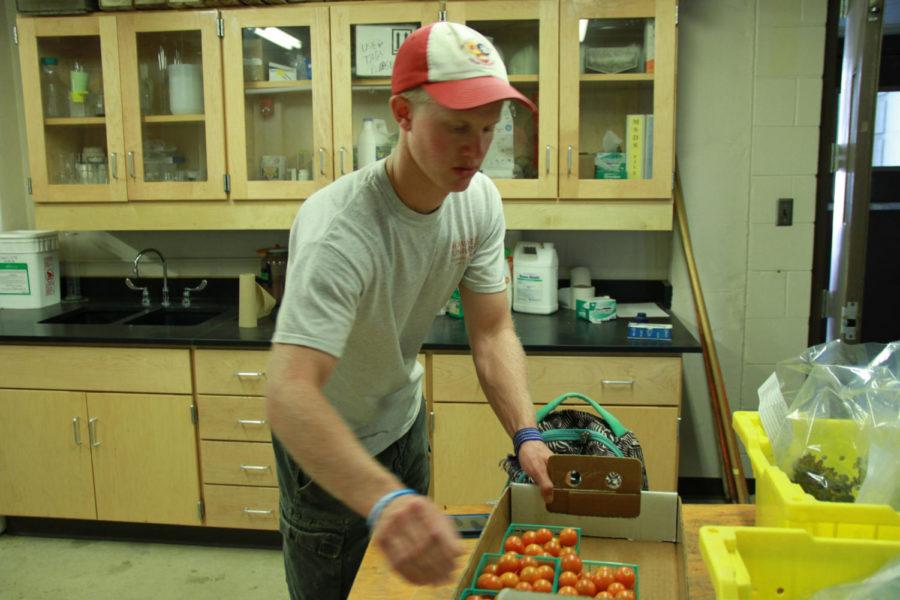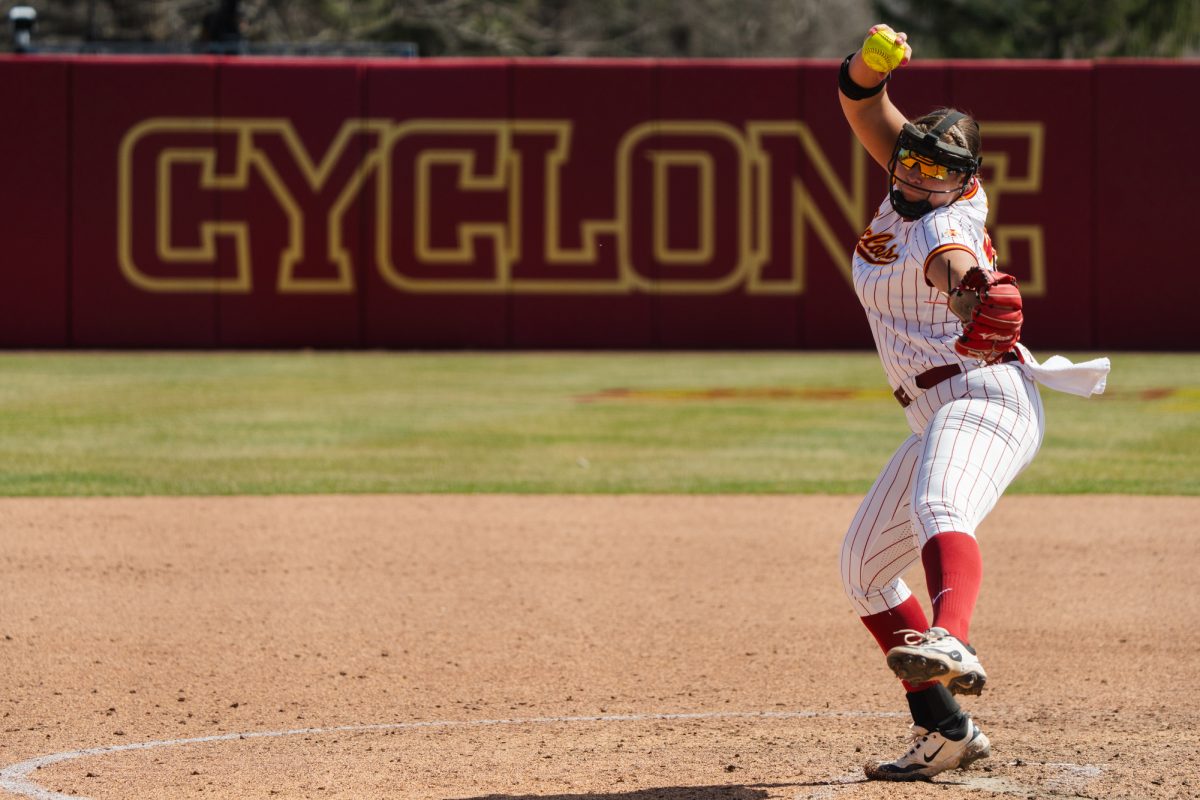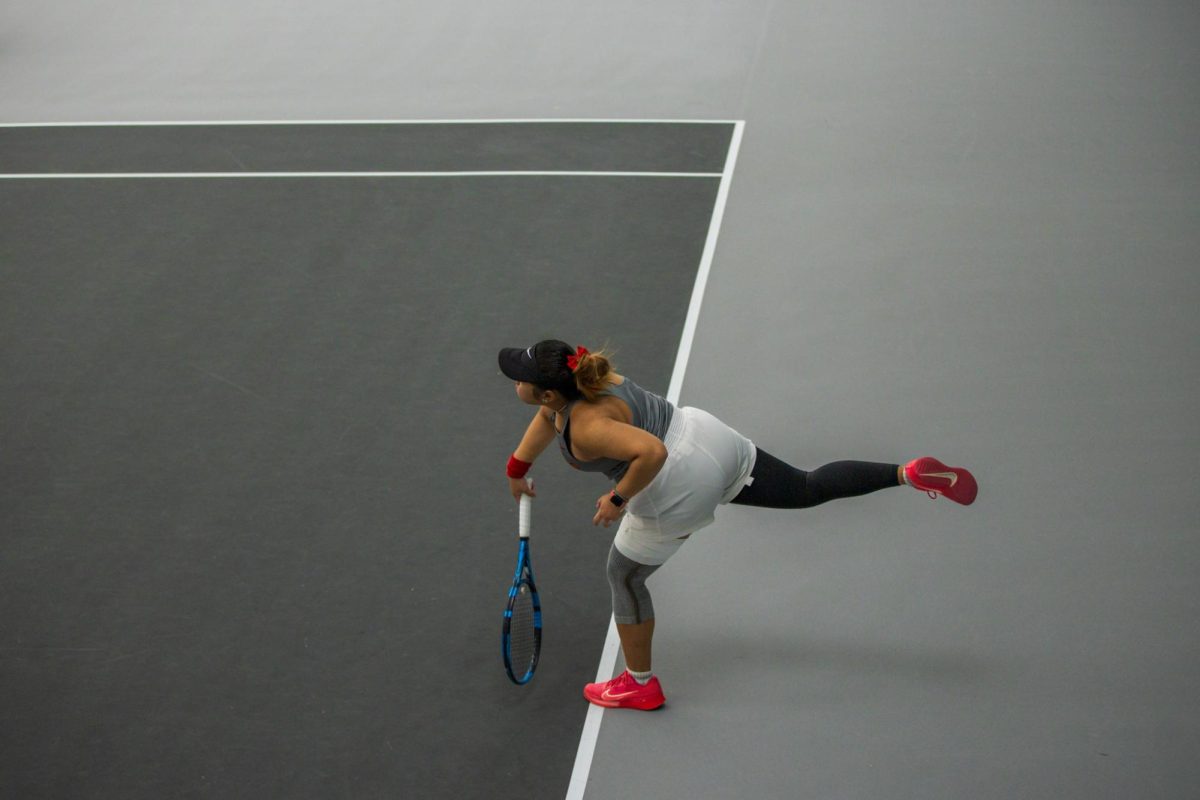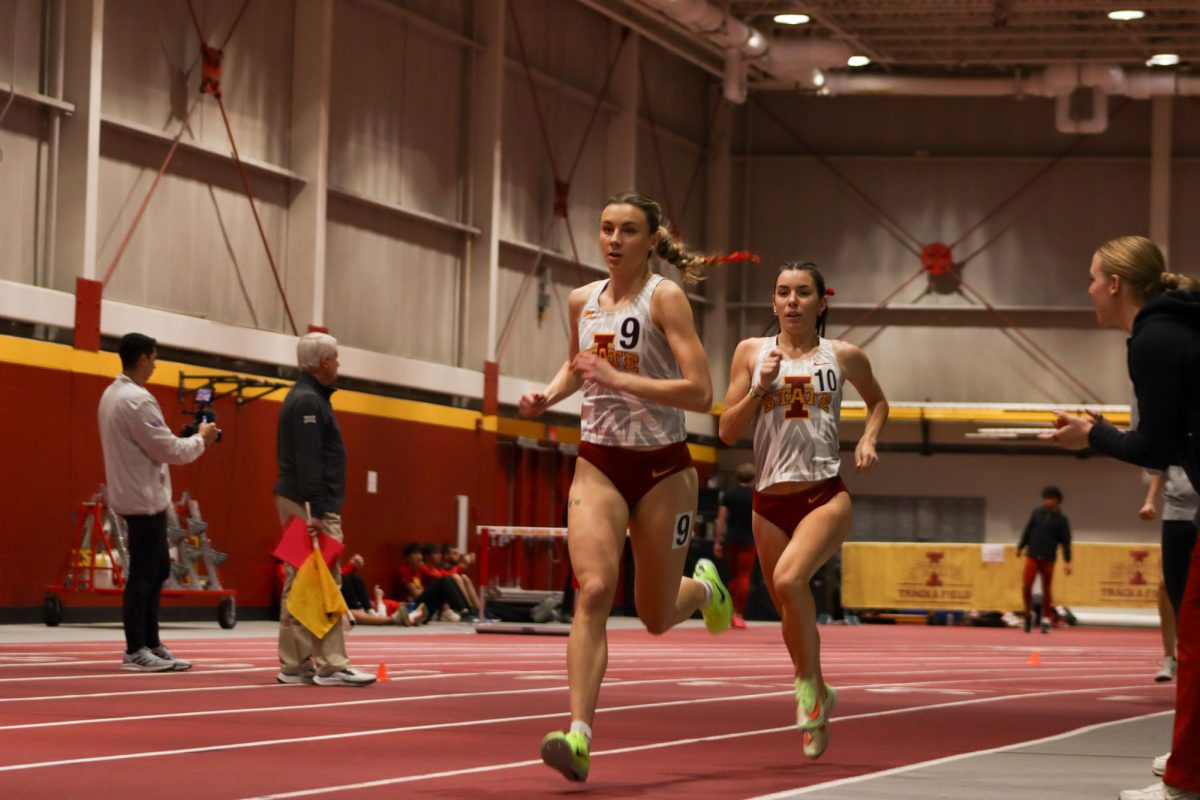Horticulture class brings fresh produce to students
Jonathan Laczniak/Iowa State Daily
Mark Rippke pulls out vegetables as a customer waits to pick up their order. Fresh, local produce is picked up by students and staff in Horticulture Hall after being preordered. The food is picked up on Fridays and is delivered from and grown at the Horticulture Research Station. The produce delivery is a part of the Horticulture 465 class.
August 28, 2014
Freshly grown fruits and vegetables are now being offered to anyone with an ISU email.
Students in Horticulture 465: Enterprise Management have created a website that enables students, faculty and staff to buy fresh produce. Orders are taken throughout the week and can be picked up on Fridays in Lot 43, between Bessey and Horticulture halls, between 11:30 a.m. and 1:30 p.m.
On Mondays, stock is taken of all the produce that will be available for the following week and the website is constantly updated as new produce is harvested.
The class has a variety of fruits and vegetables, including several types of tomatoes, squash, zucchini and peppers. The amount available varies from week to week.
Produce is never oversold and the website automatically updates stock counts.
All of the produce is grown by ISU students or faculty on the Horticulture Research Station land.
“It’s a collaboration between the class, the Horticulture Station and Student Organic Farms,” said Mark Rippke, junior in horticulture and global resource systems.
The collaboration was born out of a need to find a place for excess produce. Produce was being thrown into the compost pile but couldn’t be sold or given away.
Limiting the consumer market allows the class to find a home for excess fresh produce as well as learn about operating a business.
“It’s a very important opportunity for horticulture students to get some real-life practical experience before they leave the university,” said Nick Howell, Horticulture Research Station superintendent.
It took the class two and a half months to go from conception to a fully running website. Students worked closely with Iowa State’s IT department to create a website that would work for them.
The Leopold Center, an ISU organization dedicated to reducing the negative impacts of farming, stepped in when funding was scarce.
The site has been running for six weeks. The students hope business will pick up this fall.
“I have a feeling that once the students are back, we’ll have more business,” said Brad Bathey, senior in horticulture.
Rippke said sales have steadily grown since the launch of the website. He hopes the growth will continue as people learn more about the program.
The organizers hope to give students the ability to purchase the produce with their U-Bills in the future.
“I think parents might like kids purchasing fresh produce with their U-Bill money,” Bathey said.
Only natural pesticides are used when growing the produce.
The class teaches students how to come up with a business plan and operate the business. The class is required to come up with safety and crop protocols.
Rippke is looking forward to being in the class this semester and working with customers, putting the orders together and seeing the assembly line at the research station.
Prices are based off of the Chicago Market Value of produce. Bathey said they want to be competitive as well as reasonable.
The profit is separated among the Horticulture Research Station, Student Organic Farm and the class, based on who grew the produce.
“I am really proud of the students for what they have accomplished,” Howell said.
Students, faculty and staff can go to https://foodlo.cals.iastate.edu starting each Monday afternoon to search for and order the produce that they want. Ordering closes at noon each Thursday.







